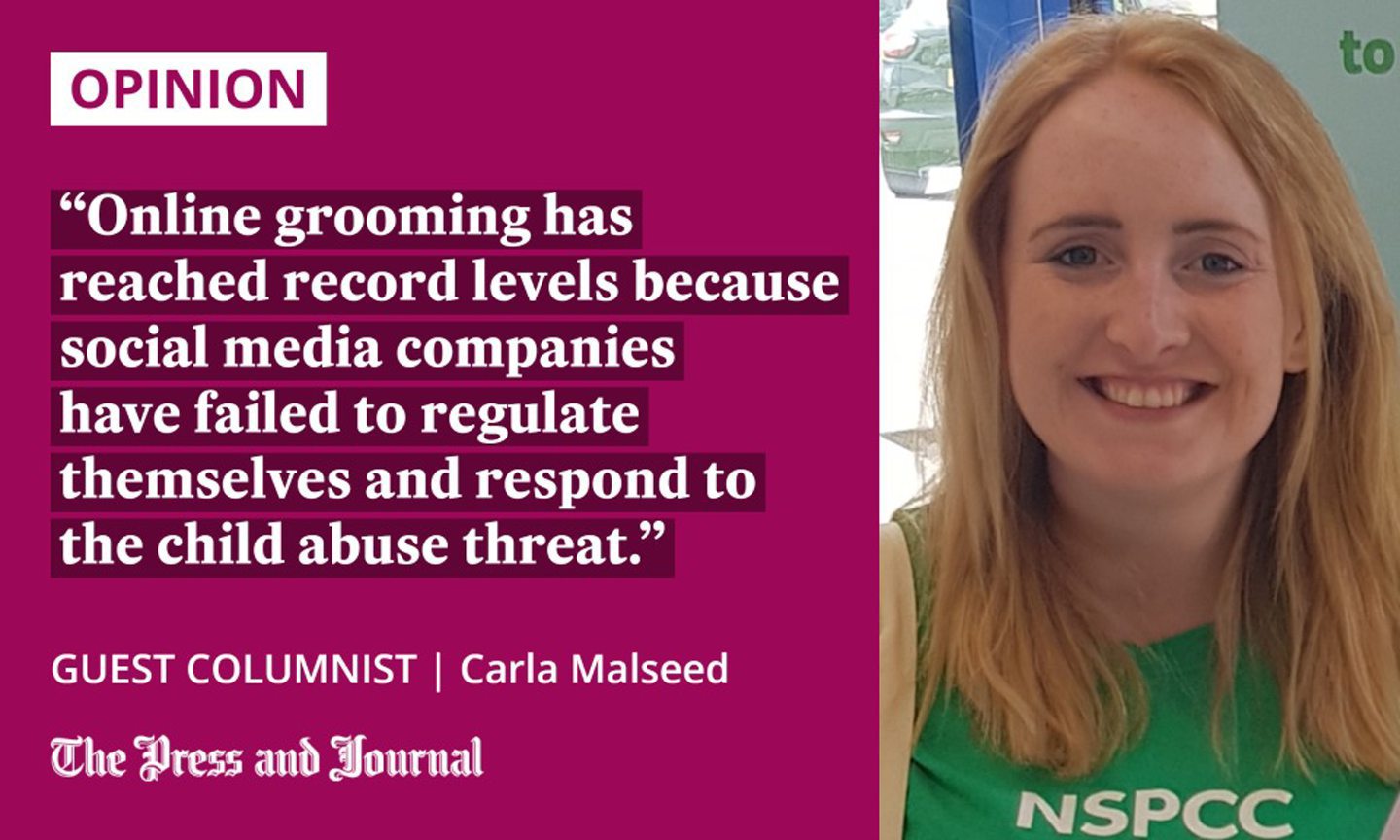Each month that the UK Government’s Online Safety Bill is further delayed, more than 100 sexual abuse crimes are committed online against children in Scotland, writes Carla Malseed of NSPCC.
The UK prime minister has now pledged to introduce new “duty of care” laws to protect children from online harms before spring next year.
As each month goes by and the government’s Online Safety Bill is delayed, more than 100 sexual abuse crimes are committed online against children in Scotland. So, it is vital that this legislation is brought in with a matter of urgency, and that the UK Government delivers on its promise to make the UK the safest place to be online.
The NSPCC’s analysis of Police Scotland crime data also found that online child sexual abuse offences have more than doubled over the last decade. Online grooming has reached record levels because social media companies have failed to regulate themselves and respond to the child abuse threat.

The websites our children use are still flooded with dangerous self-harm and suicide content, and child sexual offenders continue to contact children and young people via online games and apps. This is because there are no consequences for industry inaction. For now, it seems it’s still just up to us to ensure that young people are safe.
It’s vital that children benefit from spending time online without being at risk of harm. And, as we approach Christmas, this is something that is at the forefront of our minds.
Use parental controls and talk to children about staying safe
New gadgets are often at the top of Santa’s list, and the NSPCC is urging parents to set up security settings on all new devices before they’re opened on the big day.
A big factor to consider when we’re talking to children is their age or cognitive ability
Gaming devices and computers and laptops with webcams can be kept in family spaces to ensure parents are more aware of what their child is doing online. Using parental controls and keeping up to date on the apps and games that children are using will also help to keep them safe.
Talking to children about safety online is vitally important. A big factor to consider when we’re talking to children is their age or cognitive ability, which also impacts on the language we use and what we can talk about.
There’s lots of information on our website and on the NSPCC Online Safety Hub about how to have these conversations, as well as on helping to keep children safe online. We also offer free weekly virtual online safety workshops for parents..
Children can contact Childline for support on 0800 1111 or go to childline.org.uk if they have any worries or concerns. Any adults concerned about a child can contact the NSPCC helpline on 0808 800 5000, or email help@nspcc.org.uk.
Carla Malseed is local campaigns manager for NSPCC Scotland


Conversation